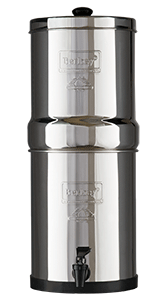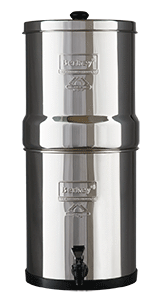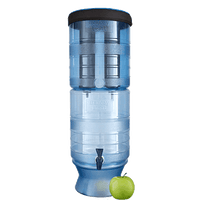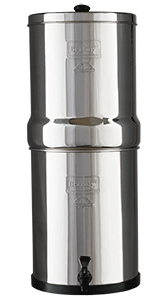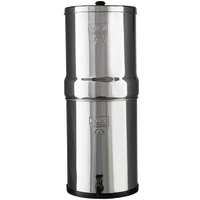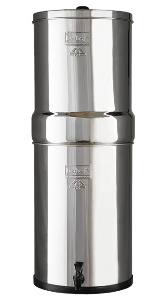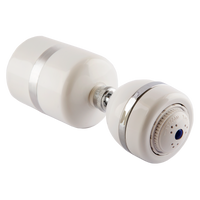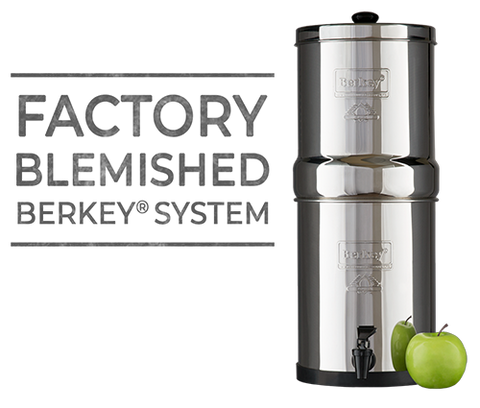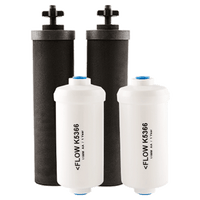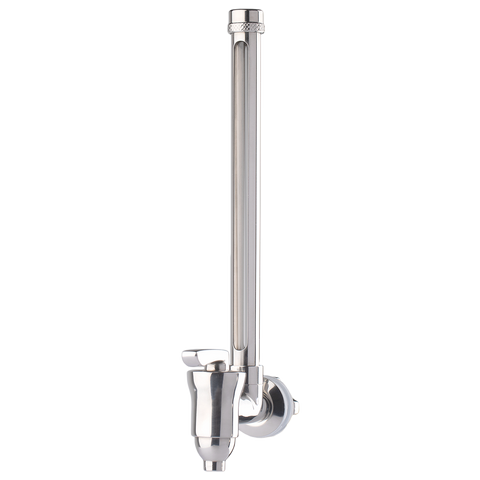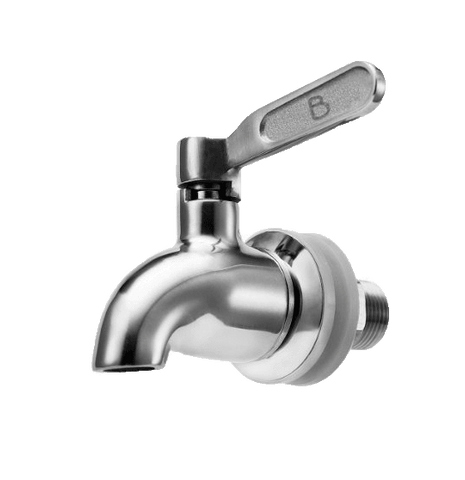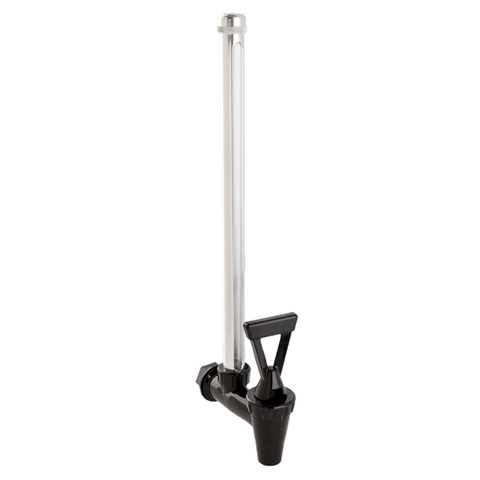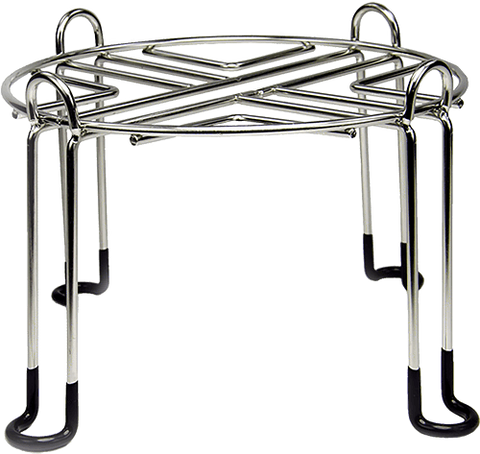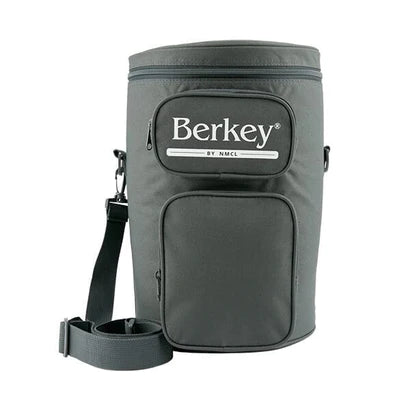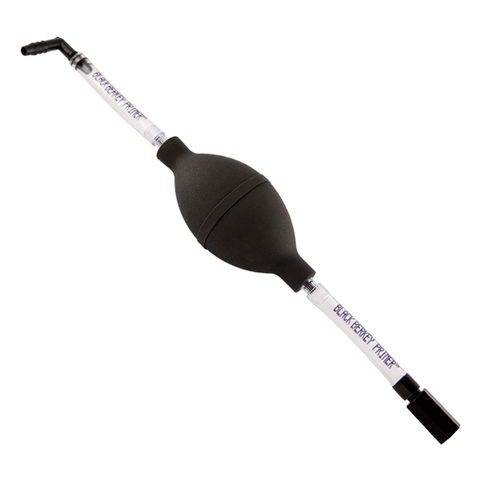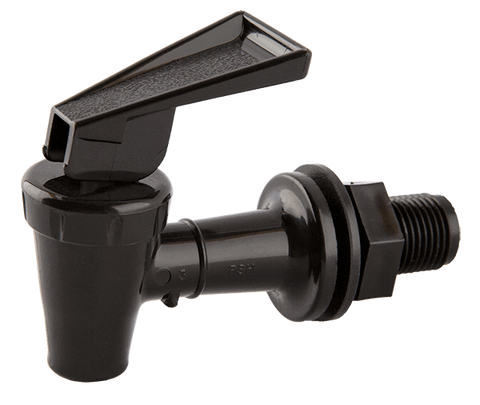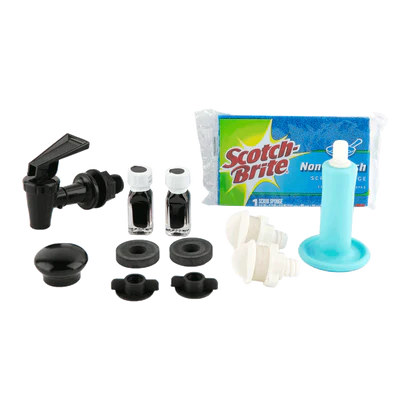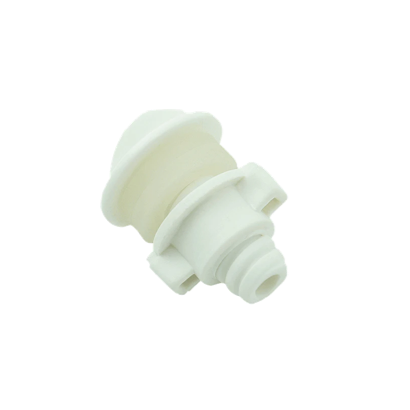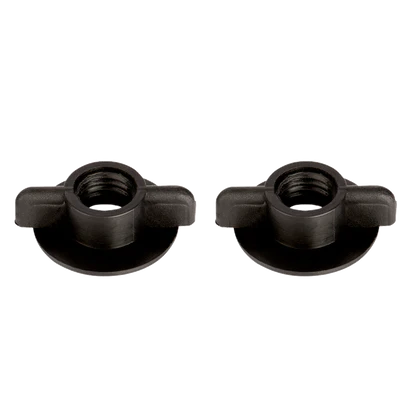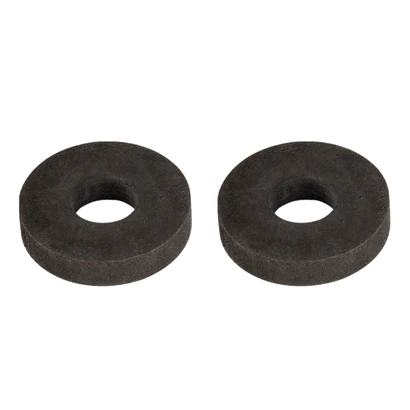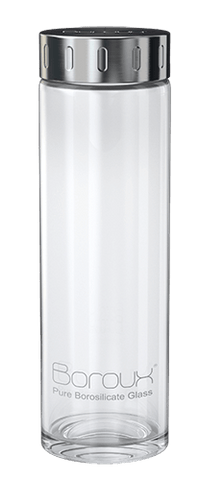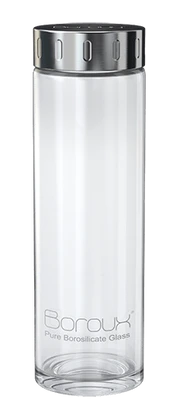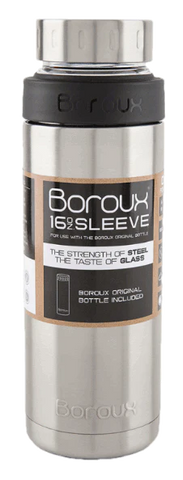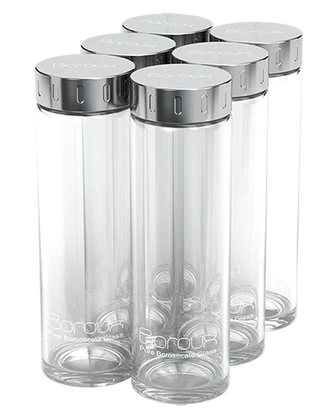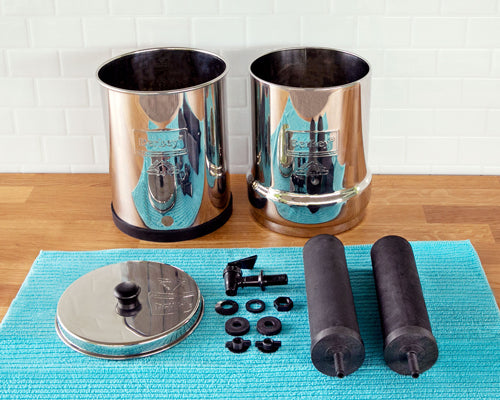Berkey Filters FAQ's
Answers to Frequently Asked Questions
What Contaminants are Filtered? (see test results)
Berkey System FAQs and Troubleshooting (common issues)
Yes, BerkeyFilters.com is the largest authorized Berkey dealer and distributor in the United States!
A Berkey water filter is a gravity-fed container that removes impurities from water. Details about how a Berkey works
Berkeys are the gold standard in water filtration. It's performance is superior when compared to other water filters.
Depending on how many people will use the system, how active of a lifestyle, and if the water will be used for more than just drinking determines the right Berkey size.
The Big Berkey is our most popular system because it produces enough water for 8-16 people, yet is still compact enough to be portable. The Big Berkey is ideally suited for most of our customers' needs.
All of our Berkey water filter systems have the exact same filter elements inside, so all produce the same quality of water. As you upgrade to larger units (Crown is our largest), the capacity and flow rate becomes higher. This gives them the ability to provide drinking water for larger groups of people.
The manufacturer, New Millennium Concepts has instructed dealers, including us (berkeyfilters.com), not to sell certain Berkey products in the state of California and Iowa due to the increasing complexity of those regulatory environments. For any additional questions or concerns contact New Millennium Concepts NMCL (berkeywater.com).
Products Included: Black Berkey Elements, Berkey Fluoride Filters, All Berkey filtration systems (Light, Travel, Big, Royal, Imperial and Crown).
No. The concentration of salt in sea water will oversaturate the filters and cause clogging issues.
Although it is not a water softener, the Berkey can sometimes reduce the hardness of water. Check out the full explanation of Berkey softening hard water.
It is not recommended to use softened water in a Berkey because the excess salt will likely shorten the lifespan of the filters.
Health experts that are up to date on current research no longer recommend drinking RO or distilled water on a long-term basis because these methods remove all the beneficial minerals from the water, making it an acidic "hypotonic" solution.
A chemist will tell you that any time a hypotonic (de-mineralized) solution comes into contact with a "hypertonic" (mineralized) solution, the minerals within the hypertonic solution will transfer out and into the hypotonic solution until equilibrium is achieved. What this means is simply that when one drinks hypotonic water, the minerals in the blood and lymphatic system, which are hypertonic, transfer into the hypotonic RO or distilled water that is consumed and the minerals are flushed out of the body upon urination.
In an effort to re-mineralize, the blood and lymphatic systems then begin to scavenge for minerals from other parts of the body, such as bones and other organs. This process repeats itself every time de-mineralized hypotonic water is re-consumed. Several studies suggest that people who drink demineralized (hypotonic) water over a long period of time tend to be more prone to degenerative diseases such as osteoporosis.
Berkey filtration systems do not remove the beneficial minerals from the water, but they do extract harmful heavy metals such as lead and mercury as well as sedimentary minerals such as iron oxide. Therefore, the TDS (total dissolved solids) reading will not typically change much unless there are a lot of heavy metals or sedimentary minerals in the source water.
RO systems typically are the most expensive due to the cost of the system and the additional expense to have the system plumbed in. Next in cost would be a distillation unit. A Berkey system will typically be the least expensive of the three. Calculated upon the cost per gallon for replacement filters and energy costs, distillation systems and RO systems properly maintained typically cost between 35-65 cents per gallon. A Berkey system typically costs less than 3 cents per gallon.
Berkey is the original North American distributor for British Berkefeld, a company who makes the finest ceramic water filter available. These ceramic filters are excellent at removing harmful contaminants from sediment, heavy, contaminated drinking water. It soon became clear to Berkey that a more powerful filter was needed. After many years of research, Berkey developed the Black Berkey® Element. Black Berkey® Elements reduce trihalomethanes, inorganic minerals, heavy metals, pharmaceuticals, pesticides, VOCs, petroleum products, perfluorinated chemicals, rust, silt, sediment, and even radiologicals. Black Berkey® Element significantly raised the bar to a level that no other gravity flow water filters are currently able to attain.
We don’t recommend the recycling of the Black Berkey® Elements or PF-2s. The shells of the Berkey PF-2™ are made of Polypropylene, which is Recycle Code 5. Uses of Polypro (for short) include ketchup bottles, yogurt containers, margarine tubs & medicine bottles. However, there is no recycle code for the Berkey PF-2™ elements. A recycle code cannot be assigned since the element is sealed and contains material inside for arsenic & fluoride reduction. To recycle, one would have to cut the element open and remove the material before recycling the plastic shell.
The same issue applies to the Black Berkey® Elements. The complex matrix of materials used within the media of the Black Berkey® Elements does not allow the elements to be easily classified by a single recycle code. In addition, with both of these types of elements, there is no way of knowing what contaminants are in the media after use.
The stainless steel container on the Berkey is made from highly polished AISI (American Institute of Steel and Iron) 304 grade stainless steel. It is known for its heat and high corrosion resistant properties. The stainless steel does not contain lead. This type of stainless steel contains between 8 to 10.5% nickel.
Read more about why Berkey uses Stainless Steel.
When water is filtered through our system, the Black Berkey® Elements may increase the pH level of the water between 0.5-1.0. The majority of contaminants are generally acidic in nature. When they are removed, this causes a slight increase in pH. The pH level will depend on various factors including what the pH level of the pre-filtered water is.
Detailed explanation on how Berkey effects the pH of you water.
Berkeys filter over 200 contaminants. Independent lab tests show the rates at which each contaminant is reduced.
Yes, each time you fill your Berkey Water Filter System's top chamber you should fill it up to the top of your filters. Only filling your system partially can wear out your filters unevenly, as the bottom of the filter is doing all the work! This causes the filtration rate to slow substantially, as the unused portion dries out and needs to be primed more frequently. Always make sure your bottom chamber is empty, before filling the top chamber, to avoid overflow or leaking.
A pair of Black Berkey Filters should last approximately two to five years or up to 6,000 gallons. Learn more about how to calculate life span of filters and what might cause the need to replace earlier.
The rate that the filters produce water will slow down. This is an indication that the filter needs to be cleaned. If after cleaning your elements they do not filter any faster, it is time to replace them.
Berkey flow rate varies from drips to a steam. A slower flow rate is typically caused by clogged filter pores. To remedy this, scrub the filters. Unlike other filtration elements, the Black Berkey filters can be cleaned numerous times before needing to be replaced.
Typically the problem you are experiencing is due to high water tension, which prevents the air from purging from the micro pores of the new filtering elements. Included with your Black Berkey filters are a priming button and priming instructions. Take out the Black Berkey filters, prime, and re-install.
A full system flush and cleaning typically remedies the taste of Berkey water.
Yes. The Red Dye Test is method of testing the functionality of the Black Berkey Filters. It's important to note that a TDS meter is not a good test for Berkey water.
Please check the box which held your Black Berkey Filters. The box should contain two filters. Attached to each element should be a black rubber washer and a wing nut. Also in the box, should be what could look like another single rubber washer, however, it will be tan in color. This is your priming button. It is thicker than the black washers, and the center hole is smaller. This tan priming button can easily be confused with a washer.
A TDS meter does not register much of a change between the pre-filtered water and the post-filtered water. This is normal, and the answer has to do with what a TDS meter actually measures. For a full explanation, check out the TDS Meter and Berkey Water page.
Yes it is normal and not unusual for the last 0.5" to 2" of water to remain in the upper chamber. By design, the water must pass through very fine micro pores within the filtration elements in order to pass from the upper chamber to the lower. The lower the water level in the upper chamber, the lower the pressure available to force the water through the micro pores. You may have noticed that the system filters much faster when full than when half full. That’s because there is more water pressure when full.
The only way to remedy this problem would be to enlarge the pores of the filter elements. This would reduce the efficiency of the Berkey filtration system. During each cycle the water left from the previous cycle mixes with the water from the current cycle and is then filtered. There is no need to be concerned about the excess water during normal use. However, should you discontinue using your filter for a period of time, such as during a vacation, it would be best to empty both chambers before departing and leave them upside down to dry on the dish rack.
Using more than two Black Berkey Filters in a Berkey will not remove more contaminants. The more filters you use the faster your water will filter from the upper chamber to the lower chamber. Using more filters will decrease the amount of volume in the upper chamber, so you may see less water in your lower chamber.
This article goes through some of the most frequent complaints that our customer service representatives receive, all compiled into one place. Berkey Complaints

